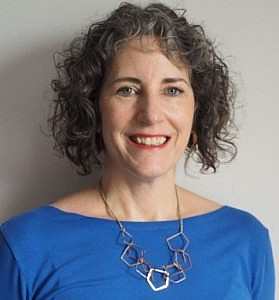ADHD Awareness Month (Attention Deficit Hyperactivity Disorder)
October is ADHD Awareness month, but what does this have to do with decluttering and organising your home? APDO member Sarah Bickers of Free Your Space explains in this insightful post.Attention Deficit Hyperactivity Disorder
You probably already know something about ADHD. Most people immediately think of the 'naughty boy' who couldn't sit still in class. You might also think of ADHD as a recent diagnosis. But descriptions fitting ADHD are found in medical literature from the early 1900's onwards, and many people recognise ADHD in historical accounts of famous people such as Leonardo Da Vinci (who is believed to have had ADHD & dyslexia). We often believe ADHD is over-diagnosed and an excuse for poor parenting, diet, not enough exercise or too much TV. However, in the UK and mainland Europe, around 90% of adults with ADHD are underdiagnosed, especially girls and women. In England only 0.35% of girls and 1.5% of boys are receiving treatment, compared with a global average of 5.3% of children. This may explain why we professional organisers often get calls from adults who describe long-term difficulties with organisation.
My own experience
I only realised I might have ADHD when my 15-year-old son was diagnosed with the condition. During his assessment I realised we shared many of the same challenges: difficulty focusing consistently, a high level of distractibility and a poor memory. Things had to stay out to remind me to do it - if it was out of sight it no longer existed in my mind. My husband's well-intentioned tidying away could be disastrous! On the plus side, I had spent 30+ years developing some pretty effective strategies to deal with those symptoms. Learning to be organised from scratch, I then started working as a professional organiser, so that I could help others get organised. My ADHD means I still drop the odd ball - and because of that I put off starting my dream job for far too long! Now I work mainly with clients with ADHD and find that my 'lived experience' of ADHD reassures my clients, as well as equipping me be more ADHD-friendly!So what is ADHD exactly?
The main three traits of ADHD are:- Inattention (difficulty focussing)
- Hyperactivity (including both physical hyperactivity and mind-wandering/daydreaming)
- Impulsivity (including risk-taking behaviours).

A brain-based condition
Rather than being a modern invention to excuse bad behaviour, ADHD is actually a brain-based condition. A brain scan of an ADHD brain actually shows differences in structure, as well as function, compared to the average. Neurotransmitters (the chemicals which pass on messages in our brain) help us get motivated and stay motivated to complete a task. In ADHD they don't work effectively. The stakes need to be much higher for us to get started on something. This is why we may often leave things to the last minute'¦ we need that kick of fear to get started. It's also why we'll manage pretty well if we're really interested in something, as our motivation is high enough to get activated. And indeed, once activated, we may find it hard to stop to eat meals or sleep! ADHD is therefore not so much about difficulties paying attention, so much as finding it much harder to moderate attention and manage priorities in time. People with ADHD may often be thought of as lazy, messy, disorganised and chaotic. However, some with ADHD compensate by working really hard to manage their internal chaos. Outwardly these people appear 'hyper-organised'. Everything has a place, and often (somewhat quirky) systems are developed. These systems may seem rather inflexible and even military to others, but they are an attempt to stay in control of things. This organisational perfectionism comes at quite a price: the extra unseen effort needed to stay in control may result in burn out, and those around them may suffer due to those often inflexible standards."Living with ADHD is like walking up a down escalator. You can get there eventually, but the journey is exhausting." - Kathleen Ely, Helena, Montana
So now you can see why getting organised might be quite a challenge if you have ADHD. Standard organisational approaches often won't work for you. You may have pored over countless books hoping for that 'silver bullet' which fixes the problem. You may even have had help from super organised and well-meaning friends, but this has left you feeling even worse when you don't manage to maintain the new 'system'. You may even have judged yourself harshly for not managing life as well as you think you ought. This is where working with an ADHD-friendly organiser can really help. Working alongside you as your non-judgemental ally, we'll help you find the best approach and systems for you. We'll help you 're-boot' your home, so reducing that sense of overwhelm. We won't expect perfection and will explore strategies with you to keep more on top of things as you move forwards. And should you need further help, at any point down the line you'll know you can come back for a top-up.For more resources on managing ADHD:
https://www.additudemag.com www.freeyourspace.co.uk-ADHD resources *If you think you might have ADHD, try this simple screening test. If you get a high score it doesn't prove you have ADHD but does indicate that assessment may be worthwhile. You may want to take the results to your GP and ask to be referred for an ADHD assessment. https://add.org/wp-content/uploads/2015/03/adhd-questionnaire-ASRS111.pdfA number of APDO's members are experienced in working with clients with ADHD. You can find them by searching our Find An Organiser database, and selecting "ADHD" under specialisms.
